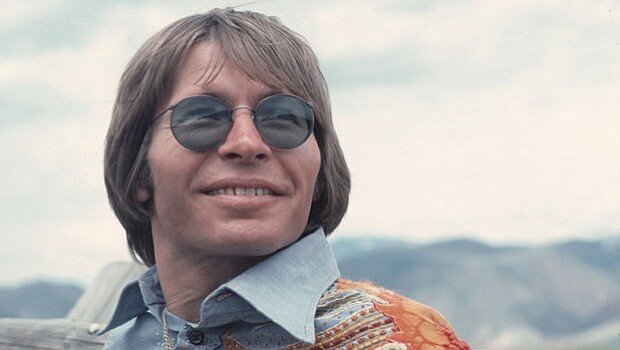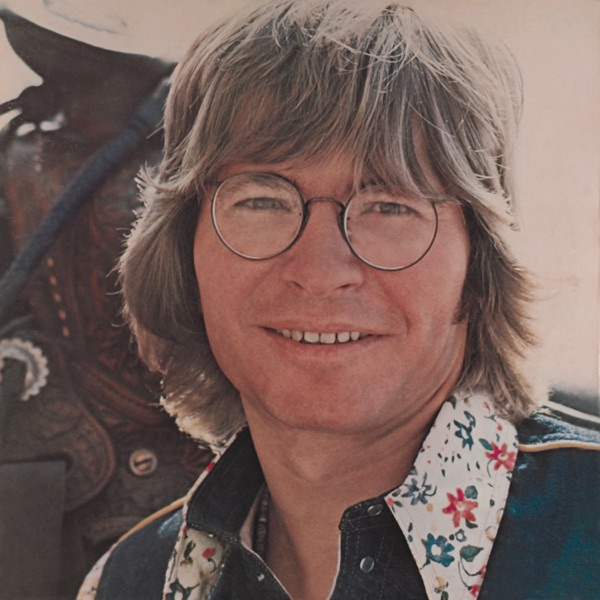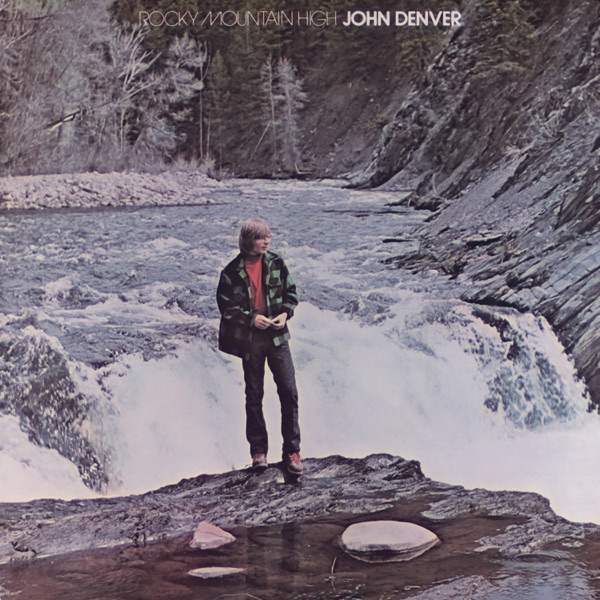Throwback: The 10 Best John Denver Songs
Stream: Apple Music
Henry John Deutschendorf Jr. is a name few people younger than 25 recognize, although nearly all of us could sing along to “Take Me Home, Country Roads.” The name John Denver, however, has reached international stardom and legendary status in the folk, pop, country, and Western music scenes. In folk’s era of duos and trios, Denver was somewhat of an outlier as a solo artist with few collaborations. He was renowned for his ability to evoke a wide range of emotions, from sorrow and sadness to excitement and elation. His lyrics and sound nurture a deep reverence for the natural world, something modern society has seemingly drifted away from. An avid philanthropist and environmentalist, Denver preferred living in semi-seclusion at his Aspen, Colorado cabin. The military brat turned cowboy found solace in nature and made it his life goal to live in and preserve it, through both his music and philanthropic endeavors.
Denver began his career as the lead singer for the Mitchell Trio in the early 1960s. Upon leaving the Trio, his solo career quickly took off. By the late 1960s, Denver was smoothly navigating stardom, though he accumulated an amateur rockstar resume. By the time of his death in 1997, Denver had achieved an iconic status and is remembered around the world for his soft, genuine smile, emotional and endearing sound, and his politically conscious lyrics and environmental and humanitarian organizations.
So why JD? Good question. As we continue to watch the disastrous effects of climate change ravage our forests and threaten our coasts, it’s important we remember early and instrumental cultural figures that spearheaded the environmental effort decades before climate change threatened to eliminate mankind. The hateful and fearful rhetoric that has plagued America for the past few years has caused deep divides within society - something Denver would have been vocal about. But instead of condemning our current sociopolitical climate, John would have approached our social issues with a positive perspective to encourage unity, harmony, understanding, compassion, and love. I can imagine an older JD holding an outdoor summer concert in the foothills of the Rocky Mountains (socially distanced, of course) singing about peace, care, sincerity, and empathy. It may seem obscure to bring up John Denver, especially if you aren’t familiar with him. But as a lifelong fan of John Denver - the musician and the man (he’s been the background of my phone’s home screen for years) - it is obvious to me that his music and his messages are more important now than they ever were.
10. “I’m Sorry” (1975)
To kick off the list, I chose a traditional JD sound, both lyrically and musically. “I’m Sorry” comes from Denver’s 1975 album Windsong. The lyrics and accompaniment evoke a strong sense of sorrow, regret, and gentle remorse. Despite the song’s lyrical sadness, the choral hums that emerge several times throughout the song manifest those melancholy emotions into a soft sound, freeing those feelings from the chest to burst through closed lips. Beyond apologizing to a lost lover, Denver explicitly apologizes to the world in his lyrics (“I’m sorry for the way things are in China”), reflecting on the loss of humanity, freedom, and peace in the Far East Asian country’s Cultural Revolution. “I’m Sorry” comes in as last in my list not because of what it lacks, but because of how traditionally ‘Denver’ it is. There’s not much, dynamically, that gives the song some of the extraordinary features that the other nine possess. That being said, there are important lessons in humility and accountability the record embodies.
9. “Rocky Mountain High” (1972)
#10 touched on JD’s typical emotionally strong lyricism. “Rocky Mountain High,” on the other hand, provides us with our first look at John Denver’s environmental reverence. And no, the title of this song and its lyrics are not drug references. Instead, Denver’s “high” is the light feeling of joy and elation that one experiences while surrounded by the mammoth Rocky Mountains. You can’t help but imagine cruising across Colorado watching the distant mountains expand while you listen to this song. The record encapsulates the raw feeling of the Rockies so effectively that the state of Colorado co-signed the track, making it one of their state songs in 2007. As an environmentalist, Denver spent much of his adult life advocating for the protection of the natural world, hence the third verse of the song which questions the corporate practice of moving mountains “to bring in a couple more, more people, more scars upon the land.” “Rocky Mountain High” has a carefree sound and feel, one that expresses and nurtures a genuine adoration for the environment and all of the gifts it gives us, both physical and emotional. Its catchiness is part of what makes it accessible for generations of listeners decades after its initial release, and its timeless message rings truer as we continue to minimize the value of our environment.
8. “I’d Rather Be a Cowboy (Lady’s Chains)” (1973)
To be honest, I wanted to slide this track closer to the #1 spot, but I decided to bring it in as #8 because of its mix of JD the lover-boy and JD the mountain man. The track’s title says it all and I couldn’t agree more. Who wouldn’t rather live on the side of a mountain than “wander through canyons of concrete and steel”? “Lady’s Chains” is a part of the narrow list of JD bangers. The steady crescendo and climax inspires reverence for a lost lover but, at the same time, an excitement for the adventures of cowboy life. The track’s chorus encourages a loud sing-along, one free of inhibitions and unconcerned with pitch or tone. The instruments in the background provide the perfect incline for Denver’s voice and lyrics to ascend, crash, and then pick back up again to end the track. “I’d Rather Be a Cowboy” is the perfect blend of JD’s romantic and environmental lyricism and a pretty rare uptempo highlight in his catalog.
7. “Follow Me” (1970)
First released on the 1970 album Take Me to Tomorrow, “Follow Me” became a staple for JD fans. Denver’s pipes feel effortless, genuine, and sincere as he glides over a calm and smooth acoustic guitar and piano accompaniment. You can feel the love he’s expressing for his (then) wife, Annie. If nothing else, the idea of genuine interpersonal connection is important, and one we all should heed during these troubling times. It’s critical, now more than ever, to follow Denver’s ideas of a unified and sympathetic world.
6. “Poems, Prayers, and Promises” (1971)
“Poems, Prayers, and Promises” is probably the best song in this list to characterize the entirety of Denver’s musical message: a message that attempts to help us realign our perspectives and priorities through John’s own trials and tribulations. Off of the 1971 album of the same name, the record is another gentle acoustic ballad with a charming poetic simplicity. Denver’s voice is like a lullaby, one that cradles and rocks the soul and reminds us of the truly important things in life, like love, memories, and those dear to us. The steady sound keeps a tender continuity and allows Denver’s voice and lyrics to do all the heavy lifting. “And things that we believe in / how sweet it is to love someone / how right it is to care.” The song pays homage to life itself (“And I have to say it now / it’s been a good life all in all / it’s really fine to have a chance to hang around”) and expresses a sincere admiration for the intangible parts of life that will live on long after we pass.
5. “Back Home Again” (1974)
Here we are. The last stretch. I want to kick off the top five with “Back Home Again,” the title track off Denver’s 1974 album. This record was an enormous country pop hit that has been covered by hundreds, from legends like Conway Twitty to YouTube duets. Denver taps into his country persona, both lyrically and musically. If you listen closely, you can hear him slip into a vocal rural twang: a rarity for JD. Another ode to the country, “Back Home Again” is a simply crafted extended sonnet. The soft orchestral flourishes and the steady triads accompanying Denver during the chorus bring the imagination back home, wherever that place may be for each of us.
4. “Take Me Home, Country Roads” (1971)
Hands down, this is Denver’s most famous record. If you don’t believe me, ask anyone from West Virginia University. It’s probably a hot take to place it at number four on my list, so let me qualify. Yes, it’s an absolute banger that every drunk college kid at a frat party or bar will belch as the night winds down. But I would be doing a disservice to those interested in JD’s discography if I put his biggest hit at the number one spot. That being said, there’s nothing bad about this record. The simple lyrics and straightforward arrangement allow JD’s voice, harmonized with The Danoffs, build up to the famous chorus. Like “Back Home Again,” we hear JD the country boy longing for his rural abode, where his heart and memories lie. Denver’s catchy chorus repeats towards the end of the song, begging to be sung along to. The record’s international acclaim deserves all the credit it receives. It’s definitely worth revisiting if you’ve gone without listening to it for a while.
3. “Sunshine On My Shoulders” (1971)
Coming in at number three, “Sunshine On My Shoulders” is a sweet serenade to the emotional bliss nature provides. The track is essentially an adult lullaby. Denver’s Yamaha provides a soothing backdrop for poetic phrases revering the incredibly comforting yet intense emotional power of nature. The simplistic beauty of the line “Sunshine on my shoulders makes me happy” tenderly strokes the heart and feels serene, like laying under a blanket of warm sun. Like “Rocky Mountain High,” Denver references the natural ‘high’ he feels outdoors. Just to reiterate, this is not a drug reference. It is true that Denver dabbled in the weed scene and tried a few psychoactive substances (according to his autobiography, Take Me Home) but he made an effort to keep those hobbies out of his artistic craft. “Sunshine On My Shoulders” is just an all around beautiful song. From the lyrics to the music, everything about this track pleases both the head and the heart.
2. “Starwood in Aspen” (1971)
I’ve only come across a few fellow 20-something-year-olds that know Denver beyond “Take Me Home, Country Roads.” I showed one of my friends this record and it instantly became his favorite JD track. An ode to his home in Aspen, Colorado, “Starwood in Aspen” follows the typical Denver longing-for-home motif. The track begins with a simple melody and the chorus is introduced just a few seconds in as JD narrates his tender loneliness living in the city, away from his home in the mountains. He personifies the “snow covered hills” to emphasize his relationship with the environment, something he misses whenever he is away from his “sweet rocky mountain paradise.” “Starwood in Aspen” is another prime example of the mild mountain man’s sound and message. Uncomplicated, soothing, and heartfelt, this record helps strengthen Denver’s relaxed and ingenuous discography.
1. “Annie’s Song” (1974)
I don’t think many diehard JD fans would be surprised that I put “Annie’s Song” at number one. Beyond the musicality, the story behind the song is almost as moving and as beautiful as the song itself. “Annie’s Song” is the epitome of gentle John. In his most realized way, JD expresses his love for nature and equates the feelings he gets from Mother Earth with those he feels around his wife, Annie. Poetic lines like “you fill up my senses” highlight his ability to write simple, but incredibly touching phrases, and following up a line like that with environmental similes (“like a night in the forest / like a walk in the rain”) really drives home his point. “Let me drown in your laughter / let me die in your arms / let me lay down beside you / let me always be with you / come let me love you / come love me again.” If those lines don’t stir up something inside of you, check your pulse. “Annie’s Song” is a John Denver classic.
An active environmentalist and humanitarian, Denver lived his entire life full of love, energy, and passion towards all living things. The folk star helped shape the music scene towards the end of the 20th century, and “Annie’s Song” reminds us of the sound he created and popularized. In today’s world, it is easy to get caught up in the divisive and hate-fueled aspects of society. Thus it is important that we return to Denver’s music and message, and “Annie’s Song” is a great place to start. His capacity for empathy, reverence and explicit care for both man and the environment is something the modern music scene lacks. He helped popularize environmentalism, in deed and sound. Listening to Denver’s music reminds us to take the time to appreciate, preserve, and protect our environment. John Denver embodied his music and showed his audience what it meant to express a sincere concern and care for the world and its people.
HONORABLE MENTIONS
In no particular order, the songs that almost made the cut.
“Goodbye Again” (1972)
“Rhymes and Reasons” (1969)











